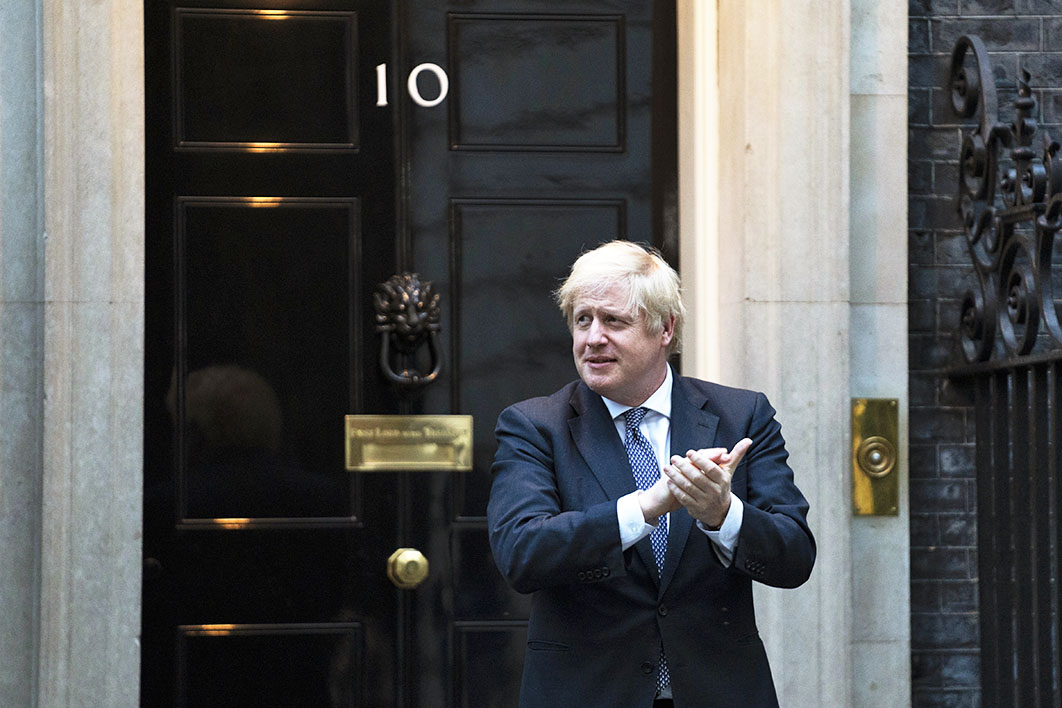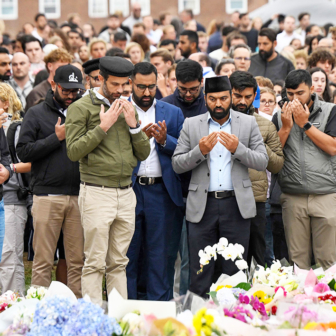In Australia, as in most countries, Covid-19 started its spread very slowly. We recorded our first four cases on 25 January, and it would be another six weeks before we recorded our hundredth case.
Until that day in March we tended to see the virus as a Chinese problem or, even more specifically, a Wuhan problem. But by early that month it was clear that the virus was out of control in parts of Italy, where overstretched healthcare workers were imposing harsh and brutal triage on infected people. It was also clear that without strong action we would soon be in Italy’s situation, and that our healthcare system, too, was not equipped to cope with such a surge of cases.
So, on Friday 13 March, three days after we recorded our hundredth case, prime minister Scott Morrison announced that “non-essential gatherings” of 500 or more would be banned from the following Monday, though he would still be “going to the footy” that weekend.
As had been the case in most countries, policymakers still didn’t seem to understand — or chose not to understand — that although the numbers were small they were compounding rapidly. But two weeks after we recorded our hundredth case we recorded more than two thousand cases. Our infection rate was growing at 23 per cent a day, a pace that would have seen the whole country infected by early May.
That didn’t happen, and it was never going to happen. Regardless of government policy, people would have been taking their own precautions as awareness and fear levels rose. Under pressure from the states, the federal government introduced strong restrictions, the prime minister decided not to go to the football, and by the end of March we had started to turn around the rate of new infections.
The tension between the states and the federal government transcended traditional party lines, and was compounded by the fact that the states are responsible for hospital care but the federal government is responsible for any necessary fiscal stimulus and for making payments to support those who lose income in any lockdown.
By now, as we track towards something between the federal health minister’s aim of “effective eradication” and the prime minister’s “suppression” (in practice they may not be very different) the message from Canberra is that we should be thinking about how we emerge from the crisis and get back to business as usual.
In terms of health policy, business as usual would mean putting those temporary hospitals back into store (or, if we’re confident there won’t be a resurgence of cases, sending them to Indonesia) and allowing private hospitals to get back to providing a full range of elective surgery.
But even if Australia remains relatively unscathed by the virus, a return to business as usual is unlikely. We can’t escape the consequences of a worldwide recession, we will have to sustain tough border controls, and we have higher-than-expected public debt to deal with. Coping with these are all within the realm of general economic management: we have come out of economic crises before. More basically, though, the virus and governments’ responses have challenged many ideas about public policy.
Just as the speed at which the virus proliferated took many by surprise, so too did the speed of governments’ reactions. Economic narratives turned around in a few days: the federal government’s focus on a budget surplus gave way, first, to the need to stimulate the economy, and then to the need to support incomes, producing the most extraordinary fiscal and monetary boost the nation has ever seen. What we had assumed to be fixed ideological positions suddenly didn’t look so fixed.
As Peter Brent has pointed out, we shouldn’t be too surprised by these economic and fiscal U-turns: governments of all persuasions have responded to crises with large Keynesian stimuluses. Perhaps it’s just that for the first time since 1982 an economic shock has occurred on the Coalition’s watch.
But a far greater shift is occurring — or at least should be occurring, as Adam Triggs argues — and it seems to have taken people across the political spectrum by surprise. One important aspect relates to the responsibility of government for the health and safety of its citizens.
“Health” or “the economy”: the false trade-off
As the virus started to spread in Europe and here in Australia, policy choices were generally framed as a trade-off between protecting people from the illness and death, and maintaining the strength of the economy. This way of thinking is similar to the idea that dealing with climate change involves a trade-off between a government’s economic and environmental responsibilities.
It’s a way of thinking well entrenched in our models of public policy and manifest, for example, in the idea of “triple bottom line” reporting, as if “society,” “the economy” and “the environment” are separate entities competing for policymakers’ attention.
This categorisation makes no sense. “The economy” is not some entity apart from society. We work, buy, sell, lend, borrow — we engage in economic activity, that is — in order to satisfy human needs, and these activities are all social activities. But so many policymakers, journalists and academics, “left” and “right,” take that categorisation for granted.
As the economic philosopher Karl Polanyi pointed out, the market is, or should be, subservient to society, subject to society’s norms and moral codes, as it has been in most of human history. But when he wrote The Great Transformation in 1944 he foresaw that the market would assume primacy after the war. We would come to live in a “market,” not in a “society,” with society subordinated to its rules. That was to be the great transformation.
As this transformation developed, so did economic indicators such as gross domestic product come to assume importance, as did financial indicators such as the government fiscal balance, no matter how far removed they were from human welfare. So too did the idea of a “job” assume an importance in its own right, regardless of its value to society or its conditions. Mortgage brokers or nurses, marketing executives or teachers — it didn’t matter much. Considerations of labour productivity got pushed off stage in favour of gross employment numbers.
Unsurprisingly then, as the virus started to spread, policymakers’ prime concern was to find a way to handle the virus in a way that would do minimum damage to “the economy.”
In Britain, that priority was manifest in prime minister Boris Johnson’s early talk of letting the virus rip through the nation to achieve rapid herd immunity. This rested on the idea that the virus could be released in a controlled way, so as to achieve that immunity over a period long enough not to overload the health system. Even this idea lacks logic: there is no assurance that those who contract the virus gain enduring immunity, and if numbers were kept low enough to ensure the healthcare system could cope it would take around twenty years for a majority of the population to become infected.
The idea is not completely off the table, however. As Covid-19 hospitalisation rates fall in many countries there are calls to ease up on restrictions, even if that results in more infections, because the health system can handle the load. The unstated premise of this idea is that healthcare workers are like frontline soldiers who can be sacrificed in order to achieve the greater good of protecting “the economy.”
When people realised what the idea of prioritising “the economy” entailed, they rejected it. Only a few hard-right governments, such as the Bolsonaro government in Brazil, have failed to yield to people’s demand for safety to take priority. In the United State a foolhardy president and a handful of hardline Republicans have demonstrated to the world that “economy first” results not only in unnecessary death and suffering, but also in unnecessary economic pain.
Politicians are starting to understand that the public reaction is not about shifting the slider in a trade-off towards the “health” end and away from “the economy” end. Rather, people are rejecting the whole notion of a trade-off.
In Australia, shadow health minister Chris Bowen showed he understands this shift when an interviewer suggested that “health had trumped the economy.” His reply: “I don’t accept that health trumps the economy. It’s the same question. What is ultimately best for Australia’s health outcomes, is also ultimately best for Australia’s economic outcomes.”
This is not just a “left” or Labor perspective. Bowen was, in fact, echoing a point made by the International Monetary Fund in its April World Economic Outlook: “Necessary measures to reduce contagion and protect lives will take a short-term toll on economic activity but should also be seen as an important investment in long-term human and economic health.”
In more general terms Mikeark Carney, the recently retired governor of the Bank of England, wrote in the Economist that the economy must yield to human values. A seventy-five-year period in which the market price of everything has become the value of everything needs to be reversed. The discovery that citizens see their health and safety as overriding concerns should lead policymakers to rethink their basic models: we live in a society, not in a market.
The partial response: tweaking the healthcare system
The notion that we should put the market back in its proper place has been gathering strength for some time, but it is doubtful if most governments understand this. Rather, as they try to juggle competing fiscal priorities in a post–Covid-19 world, they will try to tweak budgets to cope with specific problems in healthcare revealed during the crisis. Until the old categorisations become manifestly untenable they will still see healthcare as a “social program” separate from “the economy.”
But, as Jennifer Doggett has pointed out, the pandemic has a number of strong lessons for healthcare in Australia.
Even if we are entirely lacking in compassion we can’t escape the reality that healthcare, for the most part, is a public good. There is nothing like a serious infectious disease to make you realise that you have an interest in my health and I have an interest in yours.
Equally, there is nothing like finding out that a private clinic may have been holding back vital information about Covid-19 infections to drive home the message that the profit motive can be to the detriment of patients’ interests. This is not about public or private ownership — it’s about incentives. A government-owned hospital can be subject to stronger, potentially damaging financial incentives than a privately owned clinic with a community service objective.
There is nothing like seeing infections break out in places where we crowd the powerless and the poor in squalid living conditions — foreign workers in Singapore, jail inmates throughout the world, seasonal horticultural labourers — to make us understand the social determinants of health.
And there is nothing like seeing a prime minister born to the upper class in a class-ridden society like Britain’s thank his country’s nationalised health service for saving his life to convince us that we have a shared interest in good healthcare. Here in Australia we didn’t have so stark a demonstration, but those who had put their faith in private health insurance suddenly realised that if matters became serious their insurance policies were worthless. As Herman Leonard of the Harvard Business School says, “The hard jobs are left to the public sector.”
Will these lessons endure and help reshape our healthcare arrangements, or will we be caught off guard once again when the next pandemic hits? We are more likely to learn from this experience if we realise that all public policy is social policy. •




